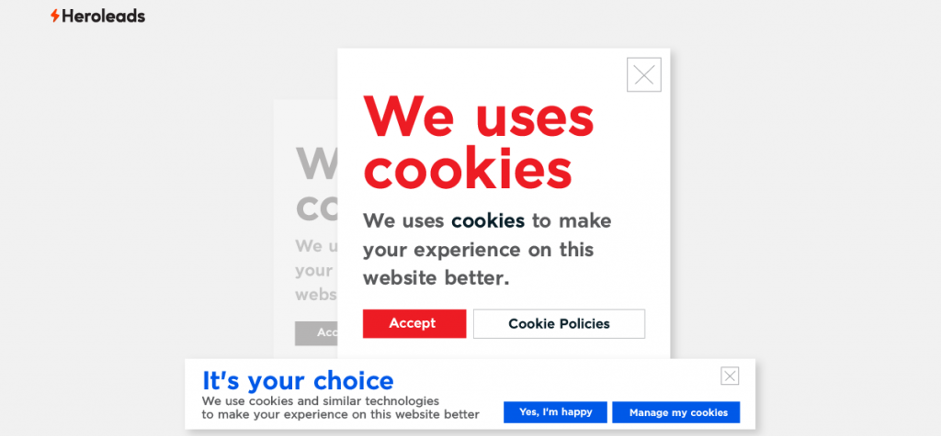The death of the cookie, what’s next?
- vivian745
- Dec 9, 2020
- 3 min read
Updated: Jan 30, 2023

What are cookies?
Cookies were initially created to improve the user experience by storing information like products added to the shopping cart, login details, and language preferences. They are remembered when the user comes back to the same website at a later stage.
Third-party cookies in most cases are created by AdTech companies and Ad Networks like Facebook, Google, Taboola etc. They were an important part of the business model of AdTech companies for more than a decade, because they enabled the tracking of users across several websites.
This in turn enables those companies to provide targeted advertising solutions to Brands, Companies and Agencies. The mantra was, the more and better the data collected, the more accurate the targeting. Improved targeting usually leads to lower costs or a better outcome.
Wind of change
“Apple will gradually push to block third party cookies completely”
Regular international headlines from Wikileaks to Panama Papers and Facebook-Cambridge Analytica data scandal [1] moved privacy into the minds of everyday people. This led to the implementation of privacy-focused laws in the European Union and many parts of the world.
In April 2016 the European Union made the General Data Protection Regulation which aims to give control to individuals over their personal data and had a great effect across the Digital Marketing industry. By default, any website doing business within the European Union is not allowed to collect any data, including loading a Google Ads, Facebook Ads or Analytics pixel, without getting consent from the user first.

In 2017 Apple added a new feature called Intelligent Tracking Prevention to their Safari browser. ITP limits or prevents the collection of user and behavioral tracking. With every ITP update Apple will gradually push to block third-party cookies completely. Starting in 2022 Google plans [2] to fully kill third-party cookies and rely on their Chrome Privacy Sandbox to balance user privacy and tracking.
Impact
“Criteo’s turnover for 2018 saw a 5% slide after the introduction of Apple ITP”
Walled gardens like Facebook aren’t heavily affected by increased browser privacy measures. They can comply with new laws and already own user information. Ad Networks without a mandatory logged-in experience like Google Ads, Taboola, or Criteo are more affected and may show lower performance, when targeting Safari users. In Thailand, the Safari market share is 26.7% according to Heroleads (Thailand).

Retargeting providers like Criteo and content networks like Taboola also feel the impact, but less than expected. Criteo’s turnover [3] for 2018 saw a 5% slide after the introduction of Apple ITP.

Outlook
“a chance to focus on first-party data and build a profitable marketing ecosystem around the brand’s value chain.”
Ad Tech and Marketing Analytics companies will rely more on modeling techniques and attribution-based Machine Learning in order to fill the data gaps. In October 2020 Google Analytics 4 was released [4] which provides cookie-less tracking capabilities, is fully GDPR compliant and relies heavily on Machine Learning to model the impact of marketing campaigns, where data is incomplete.
Content and Display networks like Google Display, Facebook Audience Network or Taboola also start to leverage contextual targeting besides direct user signals. These trends will continue throughout the industry.
It’s not long enough to rely on data collection by third parties to optimize marketing investment. Companies have to look at their first-party data and build a successful marketing strategy around it.
This means building useful experiences where users are actually willing to register on a website or app and opt-in to share their data in return for value like useful content, helpful suggestions and promotions. This first-party data can in return be used to optimize marketing budgets and performance.
Cookies were part of digital advertising for more than a decade. Losing them might be frightening at first, but provides greater independence for advertisers and creates valuable opportunities. Providing user transparency and control gives marketers a chance to focus on first-party data and build a profitable marketing ecosystem around the brand’s value chain.
Welcome to the brave new marketing world.
References
ARTICLE WRITTEN BY: JAN BADERTSCHER
Jan Badertscher is the Product Manager of Heroleads Asia. He builds successful Digital Marketing Analytics Solutions. He is involved from vision to implementation and an advocate for data democratization and machine learning.
Heroleads Asia is a part of our Batch 4 Fintech Program in Singapore.
Interested in joining our programs, click here!



